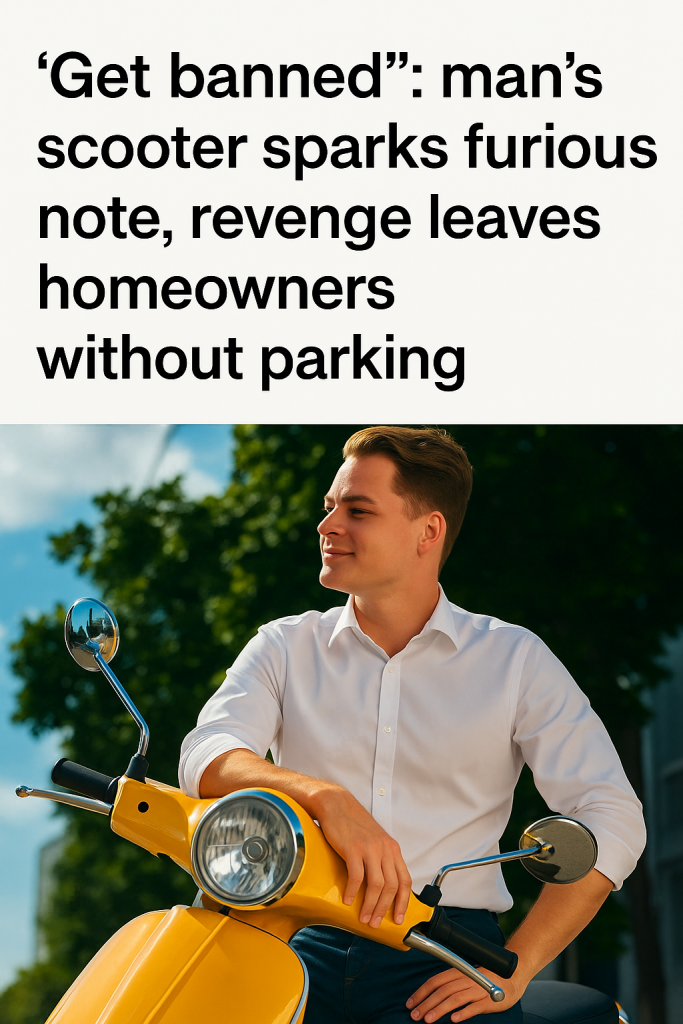A seemingly minor parking dispute over a man’s scooter has erupted into a full-blown neighborhood feud, culminating in a dramatic act of revenge that has left homeowners without parking spaces. The conflict, which began with a furious note demanding the scooter owner be banned, escalated to what witnesses describe as a coordinated effort to block off several parking spots used by local residents.
The saga reportedly started when a man parked his electric scooter in what some neighbors considered an improper spot — a shared residential parking area. A note left on the scooter’s handlebar read “Get banned”, expressing frustration and demanding the vehicle be banned from being parked there. The note quickly garnered attention on social media, where onlookers debated the issues of scooter parking etiquette and neighborhood rules.
What began as a disgruntled message soon turned into retaliation. Several homeowners, apparently angered by the scooter owner and the dispute, allegedly took matters into their own hands by positioning large objects—including a motorized segway and other items—strategically to block several parking spaces. The result: multiple residents found their usual parking spots inaccessible, igniting further tension.
Neighbors describe the scene as chaotic: “It’s like a small war,” said one local who wished to remain anonymous. “One minute it’s a note, the next you can’t even park where you have for years.” The parking spots affected are in a closely packed community with limited alternatives, amplifying the impact this incident has had on daily routines.
Experts note that this episode highlights a growing problem as electric scooters and other micro-mobility devices become more common in urban and suburban areas. Lack of clear regulations and designated parking zones often results in conflicts such as this one. While scooters offer an eco-friendly transportation alternative, their presence can strain existing parking norms and infrastructure.
Local authorities have reportedly been alerted but are treading carefully, emphasizing the need for community dialogue rather than enforcement at this stage. Some residents have called for stricter rules governing the parking of electric scooters, suggesting permit systems or designated spots to reduce conflicts.
Meanwhile, the scooter owner remains relatively quiet but has expressed frustration over the incident. According to sources close to him, he insists he was simply parking responsibly and that the backlash was disproportionate.
This incident serves as a microcosm of broader urban challenges where emerging technologies and transportation methods intersect with traditional neighborhood dynamics. As cities and communities adapt, episodes like these underscore the importance of communication, clear guidelines, and mutual respect to prevent minor disputes from escalating.
For now, the blocked parking spots are a sore point, and many hope for a swift resolution that restores peace and parking access to the neighborhood. Whether through mediation or policy changes, the community appears poised for a conversation about coexistence in a changing transportation landscape.



